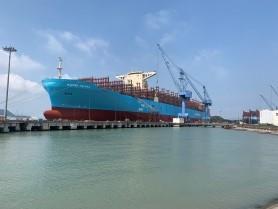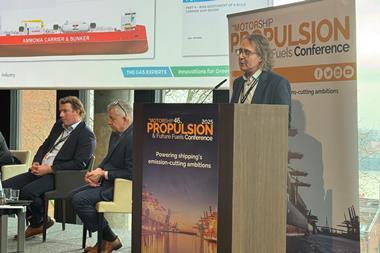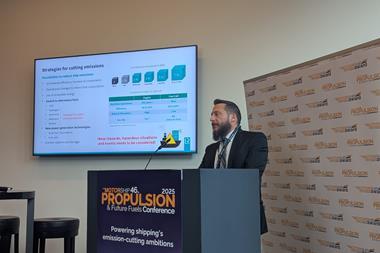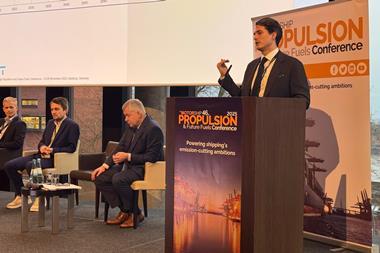Methanol’s pivotal role in maritime decarbonisation
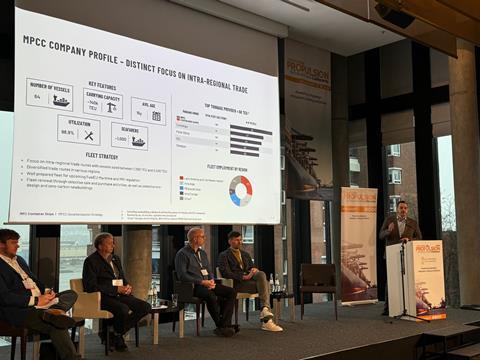
At this year’s Propulsion and Future Fuels, industry leaders, including Hannes Lilp, CEO and founder of SRC Group, and Kjeld Aabo, transport senior advisor at the Methanol Institute, highlighted methanol’s pivotal role in maritime decarbonization.
Lilp emphasised SRC Group’s capability to tackle complex and innovative projects, noting the company’s transition from a local to a global enterprise. “Our vision is to be an enabler for the maritime industry to achieve their environmental targets,” Lilp stated, adding that SRC’s multidisciplinary expertise positions it to support clients with new technologies like alternative fuels. Lilp also remarked on the competition between emerging fuels such as LNG, ammonia, and methanol, suggesting methanol’s ease of adaptation makes it a strong contender.
Kjeld Aabo shared insights into methanol’s rise as a maritime fuel, underlining its efficiency and environmental benefits. Representing the Methanol Institute, Aabo traced the journey of methanol’s adoption, from initial trials to its widespread acceptance by global shipping giants. “Methanol is the most easily adaptable fuel today, with 313 vessels already using it,” he explained.
Aabo highlighted methanol’s advantages, including low NOx emissions and higher efficiency due to cooler combustion temperatures compared to other fuels. “The methanol engine is the most efficient dual-fuel engine available,” he noted, adding that its technical adaptability ensures compatibility with existing marine infrastructure.
Both speakers agreed on the importance of supportive policies and investments to scale up methanol production. Aabo pointed to over 150 renewable methanol projects in development worldwide. However, he acknowledged challenges, including limited e-methanol and bio-methanol supply, stressing the need for government intervention to accelerate adoption.
Lilp and Aabo’s remarks underline methanol’s growing role in the shipping industry’s decarbonisation efforts, illustrating both its immediate viability and long-term potential.

